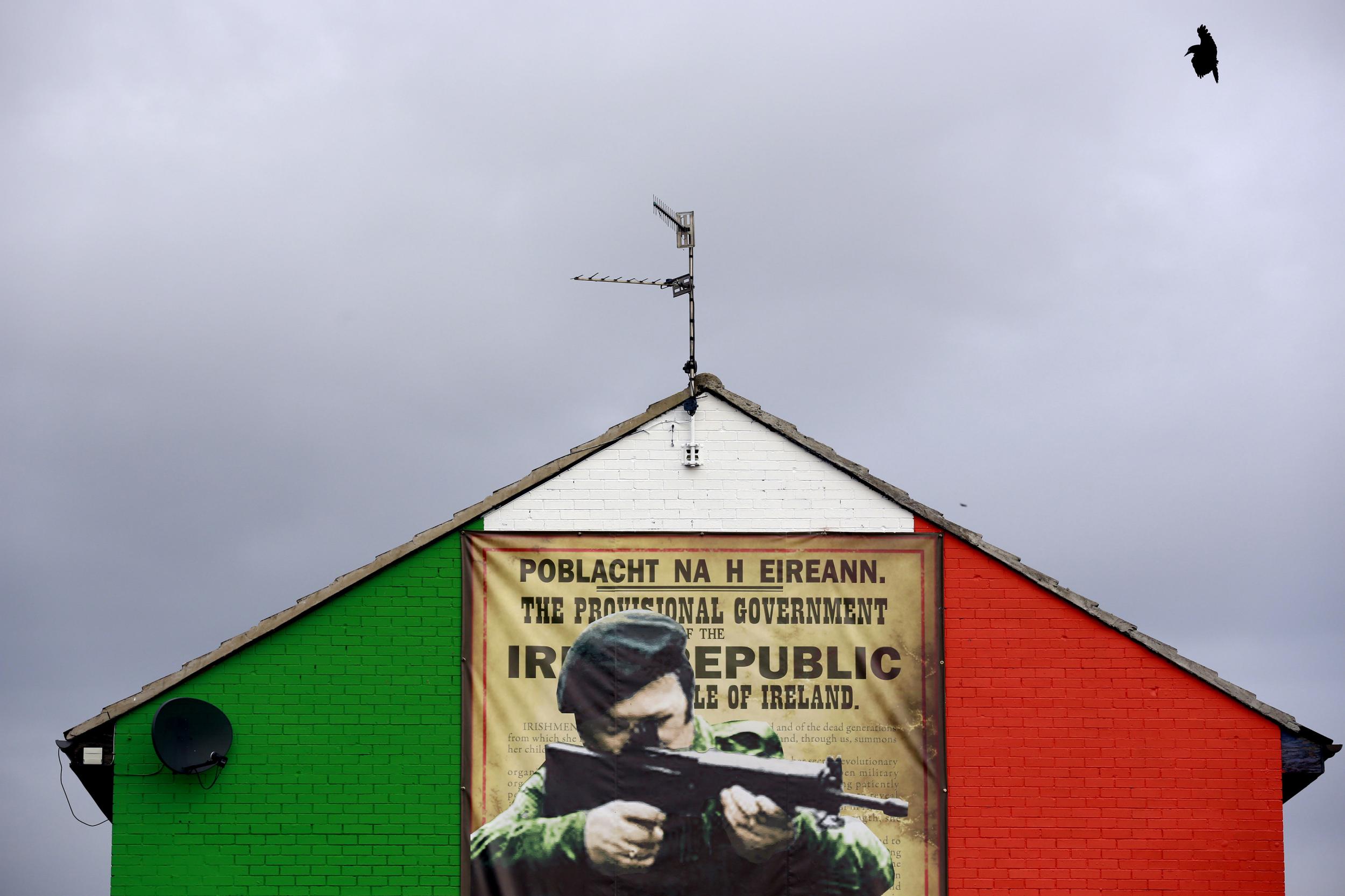Investigating British soldiers for deaths during the Troubles doesn't amount to a 'witch hunt' in any way, shape or form
Government sources have been reported as saying it will be difficult to garner support for investigations into military veterans – members of the public will expect politicians to back their ex-soldiers. But the families in Northern Ireland deserve the backing of their government too


Your support helps us to tell the story
From reproductive rights to climate change to Big Tech, The Independent is on the ground when the story is developing. Whether it's investigating the financials of Elon Musk's pro-Trump PAC or producing our latest documentary, 'The A Word', which shines a light on the American women fighting for reproductive rights, we know how important it is to parse out the facts from the messaging.
At such a critical moment in US history, we need reporters on the ground. Your donation allows us to keep sending journalists to speak to both sides of the story.
The Independent is trusted by Americans across the entire political spectrum. And unlike many other quality news outlets, we choose not to lock Americans out of our reporting and analysis with paywalls. We believe quality journalism should be available to everyone, paid for by those who can afford it.
Your support makes all the difference.Another day, another spat among Cabinet ministers. As Theresa May struggles to control her inner circle of MPs, barely a week goes by without the emergence of a new issue the UK’s most powerful politicians just cannot agree on.
This week, it’s the proposed new Historical Investigations Unit, or HIU, a body that will be tasked with dealing with unsolved killings that took place during the Troubles. The unit was part of the 2014 Stormont House agreement - but since then, it has languished in the earliest stages of formation.
Some cynics might say the issues are not the real focus of the arguing between Cabinet members, and I would count myself among that group, but giving the ministers the benefit of the doubt, the new unit does present a problem to the government.
The crux of some MPs’ issue with the HIU is that they feel military veterans are not sufficiently protected from possibly being unfairly targeted and made to face spurious legal challenges.
Calls for a statute of limitations that would ensure veterans cannot be tried have been opposed by relatives of victims as well as Sinn Fein and the DUP. And indeed it seems completely illogical, if not legally impossible, to give one group total amnesty while continuing to investigate others for historical crimes.
Those calling for an amnesty often cite a disproportionate focus on the actions of soldiers when investigating historic crimes – but these arguments are based on shaky foundations.
According to figures from the PSNI, its legacy investigation branch is looking at 1,186 unsolved deaths in Northern Ireland that took place between January 1969 and the signing of the Good Friday Agreement on 10 April 1998. The police have attributed 45.5 per cent of these killings to republican paramilitaries, 23 per cent to loyalist paramilitaries and 28.5 per cent to security forces, with the remaining 3 per cent unattributed. Meanwhile, the now-disbanded Historical Enquiries Team completed 1,615 investigations, with 1,038 attribute to republicans and 32 to the armed forces, with 536 attributed to loyalists and 9 unknown.
The numbers do not bear out a disproportionate hounding of former soldiers, and it is disingenuous and disgraceful of MPs to pretend that a so-called “witch hunt” is taking place.
Northern Ireland is a world apart from the rest of the UK in many respects. The Good Friday Agreement brought about a kind of peace, but there are still security incidents taking place on a regular enough basis to make that peace feel quite fragile.
Then there’s the feeling that Northern Ireland was treated as an after-thought when it came to the EU referendum - the government literally still has not set out its plan for the Irish border, almost two years since the vote – which hasn’t helped foster trust in Westminster.
And now the Cabinet is throwing up obstacles that could keep hundreds of families from finding justice for their loved ones who were killed during the Troubles.
Government sources have been reported as saying it will be difficult to garner support for investigations into military veterans - members of the public will expect politicians to back their ex-soldiers.
But the families in Northern Ireland deserve the backing of their government too. Some of the victims of the Troubles were killed unlawfully by soldiers, and the fact that most soldiers would not have committed such crimes doesn’t mean the ones who did should get away with it.
Pretending that all of the killings that were carried by agents of the state were justified is not acceptable, and that’s exactly what an amnesty for former soldiers looks like to me.
Why is it important that families of people killed by republican or loyalist paramilitaries be given the courtesy of a thorough investigation, but not the relatives of those who died at the hands of soldiers?
Wearing a uniform should not protect a person from the law, although it might have in the past - it’s time to draw a new line in the sand. Either it’s decided that it’s wrong for soldiers to kill innocent civilians, or it isn’t. Hiding behind rhetoric about witch hunts has to stop.
Join our commenting forum
Join thought-provoking conversations, follow other Independent readers and see their replies
Comments